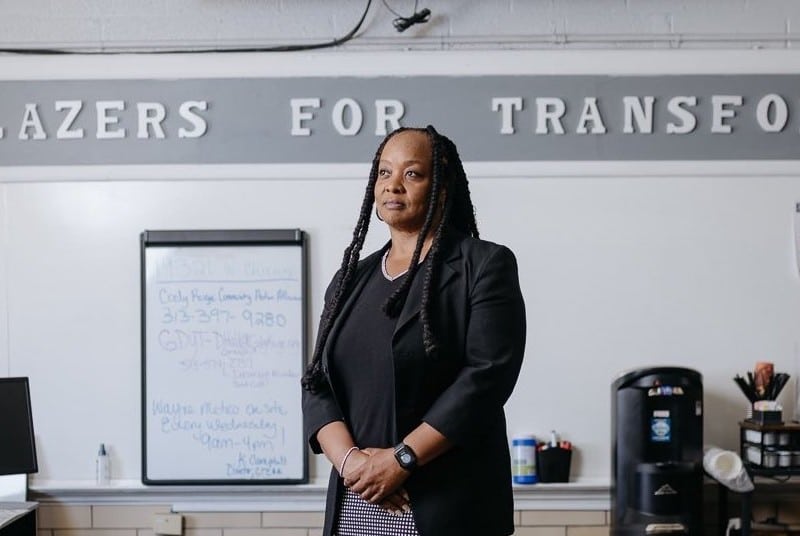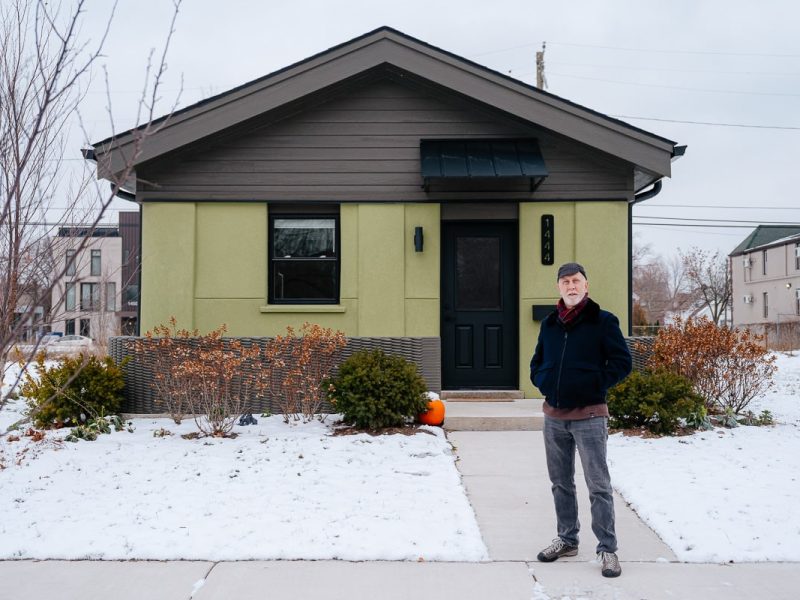Trucking entrepreneur navigates her company through COVID-19 roadblocks and industry stereotypes
Drawing inspiration from her family’s background in the trucking industry, Detroit entrepreneur Cherie Styles built Cheetah Logistics from the ground up, and she’s not about to let the COVID-19 pandemic stand in her way.
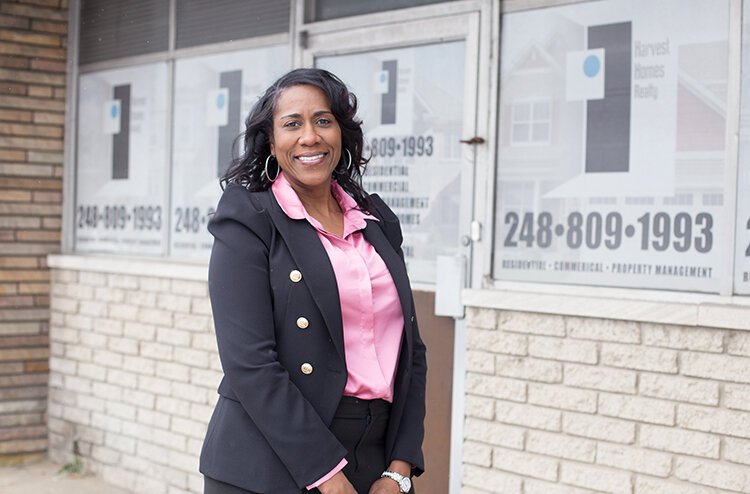
When Cherie Styles decided to move to Detroit in 2014, after spending almost two decades in Las Vegas raising her children and establishing a career in the medical field, she knew that she wanted to make a change.
“I wanted to jump into being an entrepreneur,” Styles says. “The trucking business inspired me, but what linked me to Detroit is housing.”
Styles had been inspired several years earlier, after hearing news about Detroit’s comeback. Taking notice of the city’s emerging real estate opportunities, the Chicago native, who had lived in Grand Rapids during her teenage years, turned to longtime friend and Detroit-based real estate investor Fred Pickens for advice.
“[I] suggested some things as far as, instead of going back and getting a 9 to 5, jumping out on faith and becoming an entrepreneur,” Pickens says.
Styles took the leap.
By 2011, she was commuting between Las Vegas and Detroit, tackling the city’s real estate industry under Pickens’ mentorship while partnering with him to develop Fosters Solutions, a nonprofit that provides transitional housing for families in need and young adults that had aged out of the foster care system.
“It was inspirational for me because I tried to mentor a couple people [in the past], and they just didn’t get it,” Pickens says. “But Cherie? She’s a fast learner. She comes in, she gets it quick, and she takes over.”
In the years that followed, Styles’ natural entrepreneurial mindset and sense of determination set her apart in Detroit as she launched an international logistics company and another nonprofit while rising to the challenge of every obstacle in her path — including the COVID-19 pandemic.
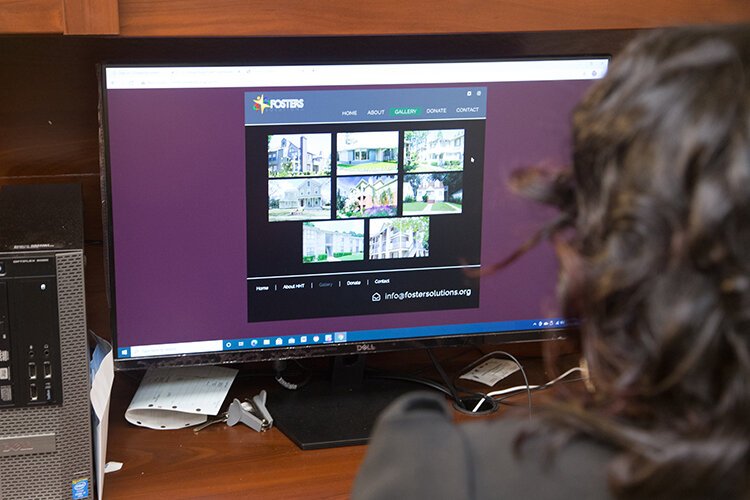
Finding her own lane
Inspired by her family’s background in the transportation industry (her father and two brothers worked for years as truck drivers), Styles made the decision to pursue the business side of trucking three years after she permanently relocated to Detroit.
“I went through a class in Chicago for five days and mastered the broker side of [trucking] back in 2017,” she says. The class, offered through Brooke Transportation Training Solutions in Schaumburg, Illinois, gave Styles the tools she needed to forge her own path in the world of trucking.
After completing the class and passing the test, Styles received her freight broker license and founded Cheetah Logistics in August that year. Headquartered on West McNichols in Detroit, the company provides transportation logistics services for the delivery of products ranging from dry van to metals across the U.S. and abroad.
“My target was being on the broker side of [trucking], because that was more of an eye-catcher in being international,” Styles says.
Despite her familiarity with the industry, running a new business came with its own set of challenges. Styles says logistics services weren’t as sought after in Detroit as they were in other regions where the company operated, and she struggled to get the fledgling company’s name in front of local clients early on.
It was while she was building her business, and working on one of her real estate ventures, that Styles noticed a need for dumpster services in the city. After struggling to find rental dumpsters to clean out one of her properties in Detroit, she had an idea.
“On the real estate side, we decided to get our own dumpsters instead of trying to find dumpsters that were not [available] in high demand at that time,” Styles recalls.
Pivoting, Styles added dumpster rentals as an additional product offered locally by Cheetah Logistics.
“Being able to target the dumpster industry along with the trucking industry was challenging,” Styles recalls. “I just started researching different dumpster companies and kind of mimicking what they were offering clients, and then being competitive.”
Today, the company offers dumpster services locally for commercial and residential clients for projects that range from home rehabs to roofing, construction, evictions, and everything in-between.
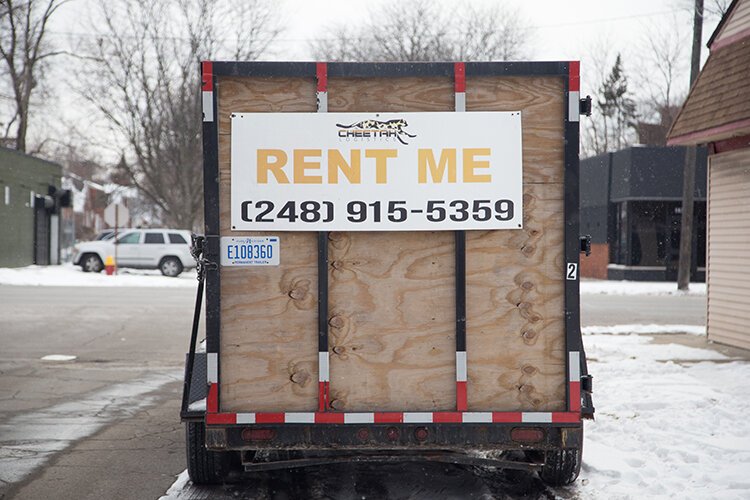
A man’s world
Marketing, sales, and shifts in services weren’t the only challenges Styles has faced as a small business owner over the last decade.
As a female in a historically male-dominated industry, Pickens says facing industry stereotypes has been one of the biggest obstacles he’s watched Styles overcome during the course of her entrepreneurial career.
“Being a woman and dealing with the male contractors — that can be challenging sometimes,” Pickens says, adding that developing “sternness” and industry expertise has empowered Styles to hold her own during difficult interactions with male colleagues.
Women make up 10% of truck drivers across the U.S. (an improvement on previous years) and approximately a third of executives in the industry, according to a 2019 survey by the Women in Trucking Association. Styles is part of the 14% growth seen in women-owned transportation and warehousing firms in the U.S. between 2014 and 2019, a sector that also saw a 28% increase in revenue during the same period.
“My determination with being a female in the trucking business has been challenging due to men underestimating females’ knowledge of the [industry],” Styles says. “Having family history [in trucking], from my dad on down, gave me that aggression to accomplish my lane in trucking and [to] dominate the dumpster business here in Detroit.”

Unforeseen challenges
Last year, the COVID-19 pandemic delivered its own unique set of challenges as Styles worked to keep Cheetah Logistics afloat in the wake of an economy brought to a near standstill due to shelter-in-place orders and public health precautions.
“With COVID-19 hitting, it slowed down everything. Everything was at a pause,” Styles recalls. “For the trucking side, we had no income coming in. Paying [for] rent space for the trucking business was really challenging.”
After receiving an email last summer with information about grants for small Detroit businesses offered by the Local Initiatives Support Corporation (LISC) Detroit, Styles submitted an application and hoped for the best.
In September, LISC notified Styles that Cheetah Logistics had been awarded a $20,000 small business relief grant — enough to cover the costs of utilities, rent, and keeping her three employees on the payroll as she weathered the slowdown caused by the pandemic.
“ ‘Small business’ typically conjures images of retail stores or restaurants, but it’s dedicated entrepreneurs in every industry that make Detroit move,” says Stephanie Inson, program officer at LISC Detroit.
“LISC’s equitable economic development strategy acknowledges that Black women-owned businesses are important to Detroit’s resiliency and success, so we’re glad to support Ms. Styles and Cheetah Logistics with a small grant to help her businesses adapt and grow through COVID-19.”
Although Styles is hopeful that business will pick up soon as COVID-19 vaccines continue to roll out across the country, she says Cheetah Logistics is still slower than usual and she’s thankful for the financial support provided by the grant.
“With COVID-19 cases, everybody is being really skeptical in regards to one-on-one contact, with exchanging even monetary funds, things of that nature. So it’s been pretty slow,” Styles says. “But I think it’s going to be picking up pretty soon. We have our fingers crossed.”
Despite the challenges she’s endured over the last several years, Styles remains positive and passionate about her work as an entrepreneur and nonprofit leader in Detroit.
She also has a message for aspiring young entrepreneurs in the city that might be second-guessing their own dreams in the wake of the pandemic.
“If you’re passionate to be an entrepreneur, and if you have a business mindset […] my advice would be to pursue it,” she says. “I would not allow COVID-19 to stop me and scare me.”
This is part of a series supported by LISC Detroit that chronicles Detroit small businesses’ journey in response to the COVID-19 pandemic.


